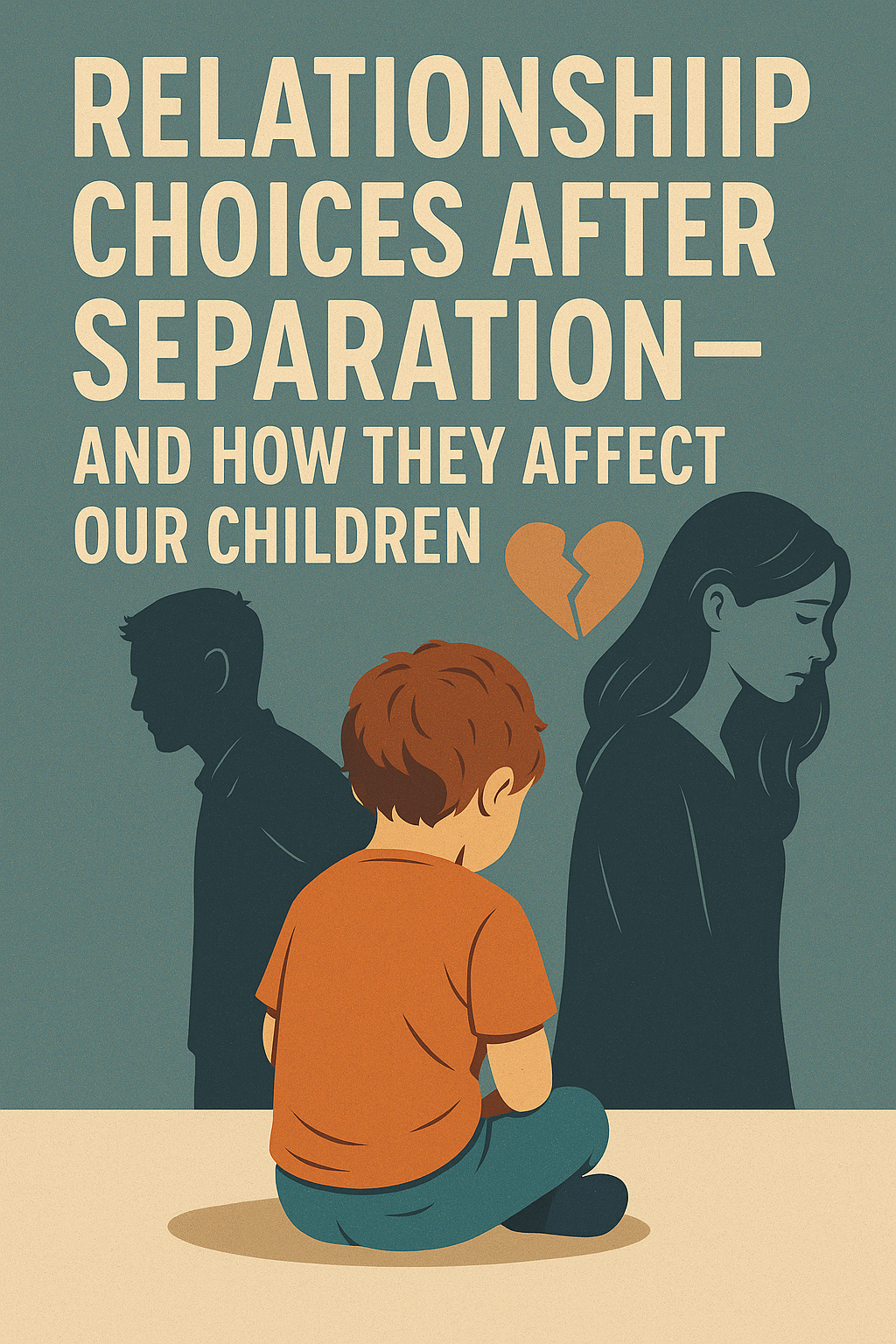Relationship Choices After Separation — And How They Affect Our Children
The truth is, after high-conflict separation, many parents are driven by a strong urge to jump straight into a new relationship. It helps calm our nervous system. It makes us feel wanted again. We crave that feeling of being chosen, and sometimes, the return of butterflies feels like healing. But what if those butterflies aren’t chemistry, but familiarity? What if the pull is not a sign of something new, but a sign we’re repeating something old? And what if, in the rush to feel safe again, we overlook the subtle signs that this connection may not serve us — or our children — in the long run?
All of this is completely normal. It is natural to desire joy again. It’s human to want connection after such intense pain. And you absolutely deserve love. But here’s the confronting truth: if a new relationship stops us from doing the internal healing we need, it stunts our growth. It becomes a distraction, a mask, a soothing balm — but not a solution. We might even ask, “Am I enough for someone else right now?” But a better question is, “Am I enough for myself?”
If we’re struggling, if our behaviour is unpredictable — moments of strength followed by emotional crashes — can a new partner truly hold us through that? Often people hide their flaws in the early days. They say, “I’m good, I’ve got this.” Then a week later, they’re in a mess again. I met a woman once who said exactly that. One day she was fine, and the next she was rude, angry, frustrated. “This isn’t me,” she said. But the truth is, none of those behaviours are really us — they are protective responses. Survival mode. Nervous system overload. They come from abandonment wounds, fear, rejection, and trauma. You’re not broken. You’re processing.
But if we are the primary carer for our child during this time, our child feels it all. They rely on us — not just physically, but emotionally — to help them regulate their own nervous system. Young children co-regulate with their parent, often the mother. Jessica Baum, LMHC, highlights how secure attachments are formed through this emotional dance. Joyful expressions, responsiveness, voice tone — they all signal attunement. Through co-regulation, a child learns to self-soothe, which literally wires their brain for connection. This pattern continues into adult relationships.
Jessica Maguire similarly explains that without soothing and emotional safety from a caregiver, children can experience dysregulation in thought, emotion, and cognition — even leading to dissociation. The parent’s ability to remain emotionally steady doesn’t just influence the moment — it shapes the child’s nervous system for life.
So, we must be mindful not only of our own regulation around our child, but also of who we bring into their life. A new partner may affect our internal stability. And if that relationship ends suddenly, the emotional disruption can deeply impact the child. Children bond quickly, especially in a home environment. If that bond is broken by another separation — often not long after the original — we risk doing real damage. These early years matter. Dr. Gabor Maté often says, “If we get the first three years right, we’re basically okay. If we don’t, we spend the rest of their lives doing remedial parenting.”
The early years are foundational for a child’s brain and emotional development. Dr. Maté explains that maternal stress, even during pregnancy, influences mental health outcomes later in life. Secure attachment, being seen, being heard, being accepted — these are the things a child truly needs. And yet, these are the things often disrupted by stress, court conflict, or a chaotic new relationship.
And we must also speak plainly here: family court rarely supports emotional regulation. It’s built around conflict. It pits parents against each other. Lawyers focus on strategy and outcomes, not the emotional toll on a child — or a parent’s nervous system. It becomes a game of winning, not a process of healing. And amid this chaos, a new partner may add calm — or they may inflame the situation even more. They may provoke reactions from an ex, add complexity to co-parenting, or, if the relationship isn’t built on healing, distract you from the deep inner work that still needs to be done.
None of this is to say you shouldn't find love again. You deserve to be loved. You deserve to feel whole. But if that love stops you from growing, if it’s a plaster over a wound that needs time to heal, then it may be doing more harm than good — not just to you, but to the child watching, feeling, and absorbing everything.
Your healing matters. Your regulation matters. Because your child’s emotional safety depends on it. You don’t have to be perfect. But you do need to be present. And peace — real peace — starts from within.
So ask yourself honestly: am I entering this relationship from a place of healing, or from a place of pain? Am I growing, or avoiding? Am I showing my child that love is safe, stable, and supportive — or am I teaching them that love always comes with chaos?
If we want to give our children the best chance to heal after separation, we must start with ourselves. Because our nervous system becomes their foundation. And they will learn from us — not just how to cope with stress, but how to love, how to grieve, and how to rise again.
